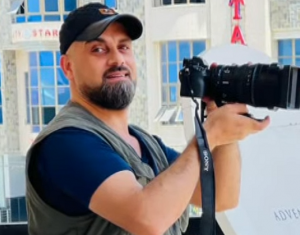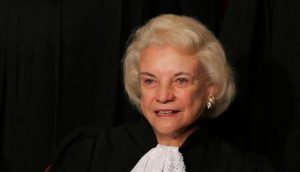The central government on Monday said that “it had nothing to hide” but cited national security reasons to tell the Supreme Court that it would not file a detailed affidavit in response to multiple petitions seeking a formal inquiry into the Pegasus spyware scandal.
NDTV reported that Solicitor General Tushar Mehta told the court “statements on this issue cannot be made through affidavits… (and) filing and then making it (part of) public discourse is not possible”.
“We cannot let terrorists know what software is being used…” NDTV reported Tushar Mehta as saying.
Also read: Pegasus scandal: Allegations serious if media reports are true, says SC
However, the court reserved its interim orders and said it would announce them in two to three days.
Earlier, the Supreme Court reminded the government that it understood the ‘national security’ argument, but that it was only asked to respond to claims of hacking of individuals’ phones.
“Last time also national security arose and we clarified nobody… is going to intervene in a way that affects national security. We asked you if there are claims of individual phones being hacked… so file your affidavit on whether it was authorised,” Justice Surya Kant said.
“We are only concerned with issues of phones of individuals (being) hacked. Which agency has powers and whether it authorised or not… There are individuals saying their right to privacy has been violated,” Justice Surya Kant stressed on Monday.
“If individuals are saying their privacy was violated… it is serious and we are ready to go into it. We will form a committee of experts,” Mehta countered.
But the court seemed unimpressed and pointed out “appointing a committee is not an issue”.
Also read: Don’t wish to file a detailed affidavit: Centre to SC on Pegasus row
“… the purpose of the affidavit was supposed to be that we know where you stand. As per your own IT Minister’s statement in Parliament – that without subjecting the phone to technical analysis – it is hard to assess whether the phone was hacked or not,” the court said.
“We have been given opportunities (the government has twice before sought time to file this affidavit)… But they (the government) don’t want to file,” it observed.
Meanwhile, senior advocate Kapil Sibal, who is appearing for two of the petitioners – journalist N Ram and the Editors Guild of India – underlined the point “about privacy of individuals”.
“All we want to know is whether Pegasus was used… we don’t want to hamper national security. If Pegasus was used, and ordinary citizens targeted, then it is very serious,” he said.
In August, the court had issued a notice to file the affidavit. It also made it clear that it did not want the government to disclose anything that could compromise national security.
The government had filed a limited affidavit saying the petitions were based on “conjectures… or unsubstantiated media reports or incomplete or uncorroborated material”.
In the ongoing Pegasus row, it involves several allegations as an Indian client of the NSO Group used the software to conduct illegal surveillance on over 300 opposition leaders, journalists and others.
It is also said that their phone numbers were allegedly found on a list of potential targets, which included Congress MP Rahul Gandhi, poll strategist Prashant Kishor and others.







